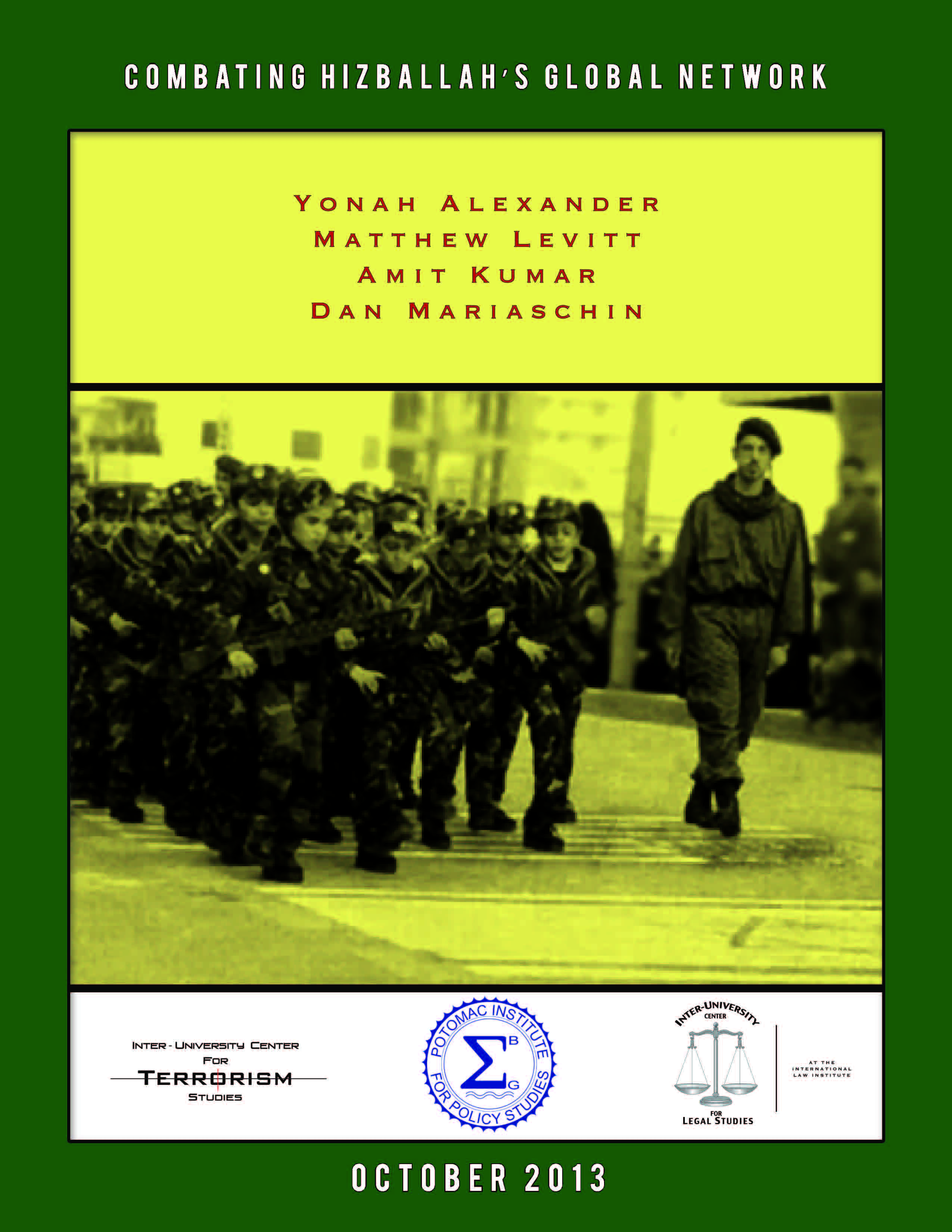 In light of the growing debate over the Geneva deal with Iran, the tactical and strategic role of Hizballah, Tehran’s major terrorist proxy in the Middle East and beyond, is becoming more critical for any future diplomatic negotiations.
In light of the growing debate over the Geneva deal with Iran, the tactical and strategic role of Hizballah, Tehran’s major terrorist proxy in the Middle East and beyond, is becoming more critical for any future diplomatic negotiations.
The new timely publication on “Combating Hizballah’s Global Network” provides an updated reality-check on the nature and potential challenges of Iran’s most effective terrorist tool in the coming months and years. It was co-authored by Professor Yonah Alexander (Director, Inter-University Center for Terrorism Studies), Dr. Matthew Levitt (Director, Stein Program on Counterterrorism and Intelligence, Senior Fellow, Washington Institute for Near East Policy), Professor Amit Kumar (Edmund A. Walsh School of Foreign Service, Georgetown), and Dan Mariaschin (Executive Vice President at B'nai B'rith International).
The just released report focuses on Hizballah’s ideology, objectives, organizational structures, major terrorist activities around the world, the Iranian connection, and what the international community, particularly the United States and Europe can do to confront the growing threat to all societies.






